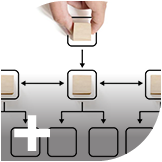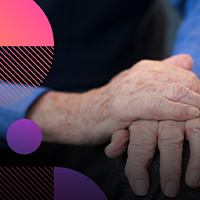Beyond clinical trials: Unleashing the power of patient-reported outcomes
For decades, the healthcare industry has relied heavily on clinical trial data and physician observations to guide treatment decisions and drug development. While lab results and physician assessments are crucial, they don’t always reflect the full picture of a patient’s experience with a treatment or condition. It’s becoming increasingly clear that beyond the charts and graphs lies a treasure trove of untapped health data that, once unleashed, can help to bridge the gap between clinical efficacy and real-world effectiveness.
Gone are the days when patients were passive recipients of healthcare. Today, armed with smartphones, smartwatches, and an array of health-tracking apps, patients are becoming active participants in their own care – and invaluable contributors to medical research.
Every step counted, every symptom logged, and every medication reminder acknowledged on our phones adds to a wealth of individualised health data, known as Patient-Reported Outcomes (PRO), unleashing a treasure trove of insights into how treatments perform outside the controlled environment of clinical trials.
From tracking medication adherence to monitoring symptom fluctuations, PRO data provides a nuanced understanding of patient experiences that can inform and improve care strategies. It’s not just about collecting more data – it’s about collecting more relevant, real-world data that can inform everything from drug development to personalised treatment plans.
As Richard Blyth, managing director, Sciensus Digital+, puts it, “The patient becomes the single point of truth about their condition, their variety of conditions, their medicine.”
Unleashing the power of PRO data
The emergence of PROs represents a long-overdue shift toward patient centricity in a sector that has historically struggled to embrace customer feedback. While industries from banking to retail have mastered the art of real-time customer feedback, healthcare remains anchored to what Blyth describes as isolated “moments in time” – brief clinical encounters that struggle to capture the full scope of a patient’s journey – and, in turn, the effectiveness of products designed to treat them.
“That’s the fundamental problem,” explains Blyth. “You go see your doctor and they say, ‘How are you feeling?’ You say, ‘Well, I don’t know. I think I had a headache last week.’ None of it is properly recorded, and therefore, it’s very difficult to track anything on a longitudinal basis.”
PROs bridge this critical information gap by providing a continuous stream of real-world data between clinical visits. This creates an ongoing feedback loop, enabling healthcare providers to identify patterns and trends that might otherwise go unnoticed.
As Blyth explains, this data-driven evolution isn’t just about modernising outdated systems – it’s about reimagining the patient-provider relationship. “PRO data gives patients a voice in their own care, helping to inform both themselves and their healthcare providers,” he says.
This information is invaluable for stakeholders across the industry, allowing individuals to fine-tune treatments with precision, intervening proactively, rather than reactively—just as other sectors adjust their offerings based on customer experience data. Moreover, this democratisation of health data carries implications far beyond individual patient care – it provides pharmaceutical companies and healthcare systems with robust evidence to optimise treatment protocols and accelerate therapy development.
Empowering patients through digital support tools
Beyond the clinical benefits that PROs offer, creating what Blyth calls “a digital+ support model provides a greater wrapper of care around the patient. Digital on its own isn’t enough for some patients, so adding in the all—important human element, combined with digital, can really make a positive impact for patients.”
These digitally enabled support programmes can help foster an environment where patients feel genuinely supported and valued as essential members of their care journey. Carefully cultivating this relationship of trust leads to more meaningful participation in the healthcare journey, with patients more willing to share information when they see it directly impacting their care.
The impact of this approach extends beyond mere data collection. When patients record their symptoms or experiences through digital interfaces, they receive immediate context and reassurance – understanding, for instance, that their experiences align with common treatment responses. This, Blyth notes, creates a profound sense of being “cared for”.
“If someone’s having a reaction to a particular therapy and they’re feeling low, you can start to serve up very, very bespoke data or insights to help them specifically,” he says. One of the most significant challenges patients face, particularly those with chronic conditions, is the disconnected nature of their care. “Most chronic patients are living with other comorbidities,” explains Blyth; and much of that isn’t taken into account.
By tracking comprehensive medication data and potential interactions, PRO systems help prevent the frustrating scenario where, as Blyth describes, patients can be left thinking, “Am I going mad? No one will listen to me.” Instead, data-driven insights create a clearer picture, enabling more coordinated and effective care across all aspects of a patient’s health journey.
The result is a healthcare experience that feels less fragmented and more supportive, where patients no longer navigate their health challenges in isolation. Instead of ending up “really panicked” or visiting A&E unnecessarily, patients receive timely reassurance and guidance, transforming what can be a frightening journey into one marked by understanding and support.
“The goal is to serve up very bespoke data to patients, helping them feel cared for and more involved in their treatment,” says Blyth.
Bridging the gap between data and action
While the potential of PROs in advancing personalised medicine is an exciting prospect, transforming information into meaningful healthcare changes presents both opportunities and significant challenges. For pharmaceutical companies seeking real-world patient insights, the path is particularly complex. “In Europe, pharma’s ability to actually get hold of real quality patient insight is low, very low, but we can help them answer crucial questions,” explains Blyth.
“What happens in the clinical trial is miles away from the real world,” Blyth notes. Through structured questionnaires and consistent engagement, PRO systems can answer crucial questions about medication adherence, patient experiences across different age brackets, and treatment effectiveness – creating a holistic picture of the patient experience that traditional research methods alone cannot achieve.
This approach transforms raw data into actionable insights, avoiding what Blyth describes as “a fire hydrant of data” overwhelming busy consultants. Instead, it creates a balanced system where patient information flows naturally between all stakeholders, bridging the gap between clinical trials and real-world experiences while maintaining rigorous data protection standards.
“Lots of pharma companies think they can do it themselves. But, by God, that’s hard,” he says. “They end up going off and trying to launch an app. Then, they realise two problems: they can’t get patients to use it, and they can’t see the data when they get it out anyway.”
In today’s digital landscape, one that is saturated with new apps and tools being launched on a daily basis, creating a new, sophisticated digital tool is not enough in itself. The real power lies in combining established patient relationships with structured data collection. As Sciensus has showcased, with a foundation of trust, providers can gather insights and feedback that resonate with medical professionals, while remaining accessible to patients.
Paving the way to personised healthcare
Integrating PRO data, as well as information gathered via patient support programmes, alongside clinical trial results creates a more powerful vehicle to drive us to deliver faster, more effective treatments and, ultimately, better healthcare decisions.
By placing patients at the heart of the data ecosystem, Blyth explains, we create meaningful connections that benefit not just the patients, but also the healthcare professionals and pharmaceutical companies striving to improve their care.
“If you can start to give patients some tools to manage the patient reported outcome data, it actually helps inform the patient themselves. It helps inform their doctor. It helps inform the wider NHS. It helps inform the pharma companies. All of those things get better outcomes,” he says. “What excites me most is the continuous adoption of technology and the engagement that follows. Every day brings new opportunities to drive better patient outcomes.”
About Sciensus
Sciensus is a leading European provider of patient access, engagement and insight solutions. We connect over 250,000 patients with their medicines at any point in time, and support and empower them to get their best outcomes.
For over 30 years we have helped chronic, rare disease and cancer patients across Europe in over 50 therapy areas.
With over 70 million patient interactions to date, we are uncovering data and generating new insights to help patients make the most of their medicines and keep their lives on track.
We partner with over 1,250 clinics and hospitals, and global life science companies, providing them with valuable insights and real-world evidence.
About the author
Richard Blyth joined Sciensus in January 2018 from SAGA, where he created a new home care division - SAGA Healthcare. As managing director, he developed a portfolio of blended, technology enabled, ‘At home’ care solutions for seniors. He has expertise in articulating and operationalising brand advantage. He has expertise in commercial sales and marketing with experience of brand leadership at RBS, NatWest, GE Capital, and Santander. Blyth is the MD for Sciensus Digital+ and CMO, where he leads digital products and insight solutions, customer experience & brand.
Supercharge your pharma insights: Sign up to pharmaphorum's newsletter for daily updates, weekly roundups, and in-depth analysis across all industry sectors.
Want to go deeper?
Continue your journey with these related reads from across pharmaphorum
Click on either of the images below for more articles from this edition of Deep Dive: Patients & Partnerships 2024

















